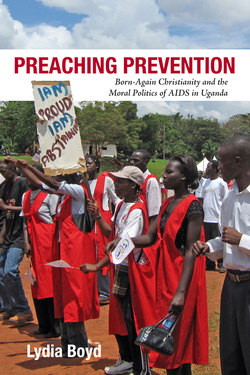Читать книгу Preaching Prevention - Lydia Boyd - Страница 13
На сайте Литреса книга снята с продажи.
Оглавление2
AIDS AT HOME
Urbanization, Religious Change, and the Politics of the Household in Twentieth- and Twenty-First-Century Uganda
In 2006, I attended a gospel music concert, organized by local churches to promote youth abstinence, at the upscale Serena Hotel in central Kampala. At the beginning of the concert a high-profile army colonel gave an introductory speech drawing surprising corollaries between AIDS and the ongoing war in northern Uganda.1 The main emphasis of his speech was that both tragedies—the war and the epidemic—had been caused by an erosion of cultural values. Young people, he explained, had forgotten how to “behave.” AIDS, he continued, was “not being helped by this business of boyfriend and girlfriend.” He stressed that the norms of “traditional culture” dictated that marriages should be arranged by families, not according to the whims of young people’s desires. His comments drew a frightening parallel between the horrors of the civil war and the sexual promiscuity he blamed for the epidemic: both were supposedly driven by a growing lack of civility and respect for cultural norms.
